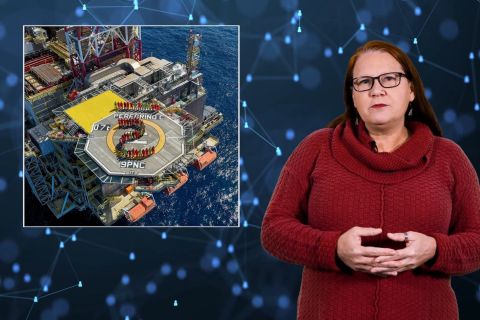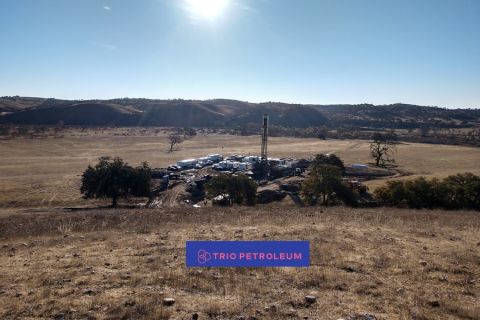The Pipeline and Hazardous Materials Safety Administration (PHMSA) issued a Final Rule revising the Pipeline Safety Regulations with updates to natural gas and hazardous liquid Pipelines, and Liquefied Natural Gas (LNG) facilities reporting requirements.
Operators will be required to use the new annual report forms in 2011 to report data for 2010. The information required to complete the new LNG incident report form is related to the occurrence of an incident and is collected during investigation of the event, not over time. In order to develop the on-line system, PHMSA is delaying the submission of the 2010 annual reports for gas transmission, LNG and hazardous liquids. The gas transmission and LNG annual reports will not be required to be submitted until June 15th and the hazardous liquid annual report will not be required to be submitted until August 15, 2011. PHMSA is also delaying the implementation of the OPID registry requirements until January 1, 2012.
In addition to editorial, reference and definition revisions for clarification to the Final Rule, Instructions and Forms, changes from the Notice of Proposed Rulemaking (NPRM) and this Final Rule include:
PHMSA is withdrawing the proposed safety-related condition report and associated changes to §§ 191.25 and 195.56 at this time.
PHMSA has also accepted the suggestion to conform the treatment of incidents in Part 191 to that of accidents in Part 195; therefore, this final rule defines a gas pipeline incident as "a release of gas from a pipeline, or of LNG, liquefied petroleum gas, refrigerant gas, or gas from an LNG facility, and that results in one or more of the following consequences.”
PHMSA has revised the definition of an incident in § 191.3 to clarify that actuation of an emergency shutdown system at an LNG facility that results from causes other than an actual emergency does not constitute an incident. This will eliminate the need to submit incident reports for shutdowns that result from maintenance, inadvertent actuations and signals, and any other emergency shutdown that does not result from an actual emergency. PHMSA has also deleted rollovers as an incident criterion.
PHMSA has not included in this final rule the proposed new criterion concerning fires or explosions not intentionally set by the operator. PHMSA is persuaded by the comments that it did not adequately consider the effect of this new criterion and the resulting burden.
This final rule requires reporting of releases that meet or exceed "3 million cubic feet" (i.e., 3,000 Mcf). PHMSA has revised the final rule to clarify that reporting under the volume threshold is only required for "unintended" releases that exceed the specified amount.
PHMSA has revised the final rule to make clear that the cost of gas lost is not to be included in the calculation of property damages for comparison with the $50,000 criterion.
PHMSA has revised the final rule to eliminate the requirement to request an alternate reporting method 60 days in advance of each required submission. The final rule provides that operators may apply for use of alternate submission methods and that approvals of such requests may be indefinite or until a date specified by PHMSA, eliminating the need to apply separately for each required submission.
As suggested by commenters, PHMSA has revised §§ 191.5 and 195.52 to allow operators the option of submitting online reports of certain incidents to the NRC (NRC).
PHMSA made changes to some of the criteria for notification: such as increasing the dollar threshold from $5 million to $10 million and has limited its applicability to projects not involving line section pipe.
PHMSA has also modified the reporting criterion for rehabilitation, replacement, modification, upgrade, uprate or other update to exclude changes that must be made on an emergency basis from the requirement for 60-day prior reporting. The final rule requires that operators notify PHMSA of emergency projects as soon as practicable.
In addition, PHMSA is withdrawing the changes proposed in the NPRM to §§ 191.27 and 195.57, and is also withdrawing the proposed forms related to these requirements.
PHMSA considers that a change in personnel, which could affect ‘‘contact information,’’ is too fine a level of detail to require notification. Therefore, PHMSA has not adopted this requirement into the regulations. PHMSA will consider modifying the National Operator Registry to make it available for operators to report voluntarily changes in contact information.
PHMSA has modified the proposed revision to the hazardous liquid pipeline annual report form and has revised this final rule to require reporting by state only for those parts of the form that indicate such reporting is required.
PHMSA has revised the Annual Report for both the Gas Transmission and Gathering Pipelines and Hazardous Liquid Pipelines forms to allow reporting to one decimal place and has indicated that rounding to the nearest mile is allowed.
PHMSA has revised Part C to require reporting of the total volume of gas transported under the reporting OPID during the reporting year for operators who do not operate their transmission lines as part of a distribution pipeline system. And has also revised this part to eliminate the need to report volume transported for operators who operate transmission pipelines as part of a distribution pipeline system.
This final rule is effective January 1, 2011.
Recommended Reading
Sinopec Brings West Sichuan Gas Field Onstream
2024-03-14 - The 100 Bcm sour gas onshore field, West Sichuan Gas Field, is expected to produce 2 Bcm per year.
Tech Trends: SLB's Autonomous Tech Used for Drilling Operations
2024-02-06 - SLB says autonomous drilling operations increased ROP at a deepwater field offshore Brazil by 60% over the course of a five-well program.
Tech Trends: Halliburton’s Carbon Capturing Cement Solution
2024-02-20 - Halliburton’s new CorrosaLock cement solution provides chemical resistance to CO2 and minimizes the impact of cyclic loading on the cement barrier.
Trio Petroleum to Increase Monterey County Oil Production
2024-04-15 - Trio Petroleum’s HH-1 well in McCool Ranch and the HV-3A well in the Presidents Field collectively produce about 75 bbl/d.
US Drillers Add Most Oil Rigs in a Week Since November
2024-02-23 - The oil and gas rig count rose by five to 626 in the week to Feb. 23




